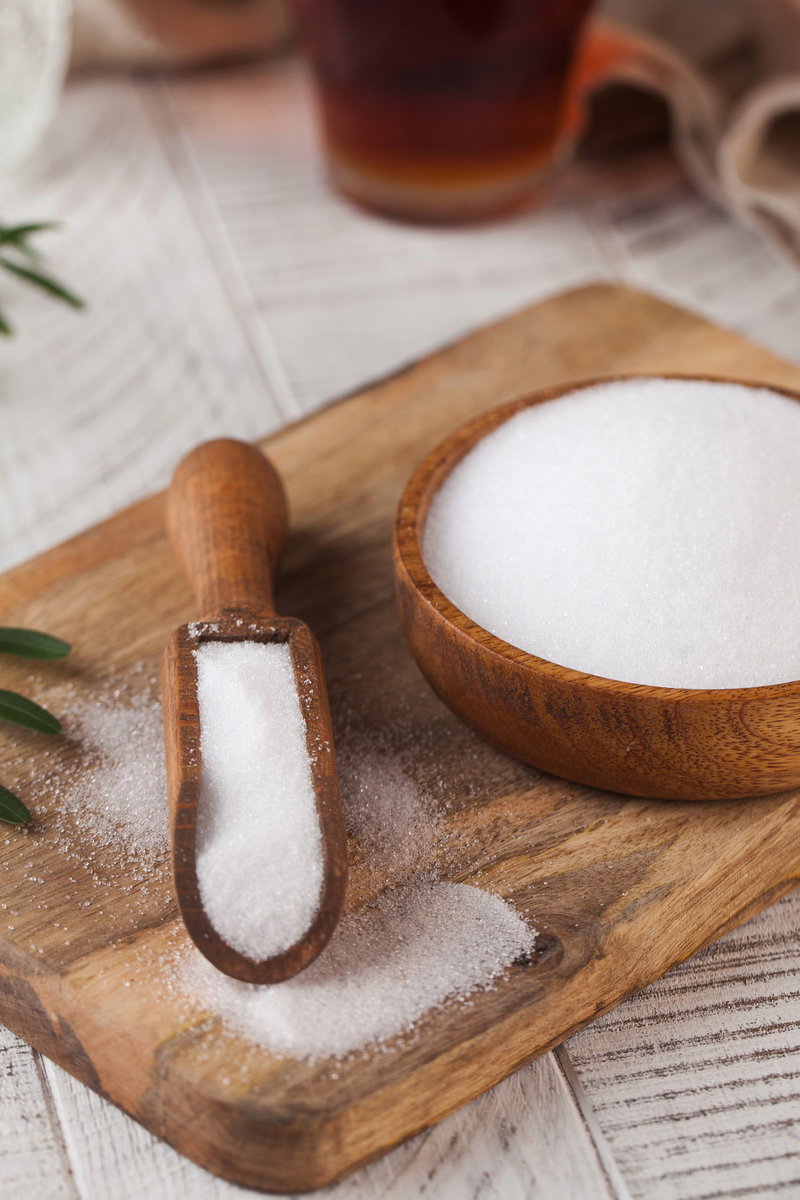Explore the Role of Stevia in Intermittent Fasting: Benefits, Mechanisms, and Practical Applications.
In recent years, intermittent fasting (IF) has emerged as a popular dietary strategy with promising health benefits, including weight management, improved metabolic health, and longevity.
While traditional fasting involves abstaining from all caloric intake for designated periods, many individuals seek to enhance their fasting experience by incorporating non-caloric sweeteners like stevia.

In this comprehensive exploration, we delve into the multifaceted role of stevia in intermittent fasting, examining its effects, underlying mechanisms, potential benefits, and practical considerations.
Understanding Intermittent Fasting:
Intermittent fasting, characterized by alternating cycles of eating and fasting, encompasses a spectrum of dietary patterns aimed at optimizing health and well-being. Among the popular IF methods are the 16/8 method, alternate-day fasting, and the 5:2 diet, each offering unique approaches to caloric restriction and timing of meals. In the 16/8 method, individuals restrict eating to an 8-hour window daily, such as from noon to 8 PM, while abstaining from food for the remaining 16 hours.
Alternate-day fasting involves alternating between days of normal eating and days of reduced caloric intake or fasting. On fasting days, individuals may consume minimal calories or refrain from eating altogether. The 5:2 diet, on the other hand, entails consuming a standard diet for five days of the week and limiting caloric intake to a fraction of normal intake on two non-consecutive days.
The synergy between about Stevia and fasting, a natural, non-caloric sweetener derived from the Stevia rebaudiana plant, is notable in enhancing fasting experiences. Stevia’s zero-calorie nature and minimal impact on blood sugar levels make it an ideal complement to fasting regimens. By incorporating stevia into fasting periods, individuals can enjoy sweet-tasting beverages or treats without compromising the metabolic state of fasting.
This strategic use of stevia not only facilitates compliance with fasting protocols but also aligns with the overarching goal of tapping into the body’s natural processes of cellular repair, autophagy, and metabolic flexibility. Thus, stevia emerges as a valuable tool for enhancing the palatability and sustainability of intermittent fasting, thereby contributing to overall health and vitality.
An Overview of Stevia:
Stevia is a natural, non-caloric sweetener derived from the leaves of the Stevia rebaudiana plant. Its sweetness comes from compounds called steviol glycosides, primarily stevioside and rebaudioside A, which are up to 200-300 times sweeter than sucrose. Unlike artificial sweeteners, stevia is considered safe for consumption and has been approved as a food additive in many countries, including the United States and European Union.
The Role of Stevia in Intermittent Fasting:
One of the key considerations when incorporating any substance during fasting periods is its potential to disrupt the metabolic state of fasting, particularly by triggering an insulin response or affecting blood glucose levels.
Fortunately, stevia has been shown to have minimal impact on insulin secretion and blood sugar levels, making it a suitable option for those practicing intermittent fasting. By providing sweetness without calories or carbohydrates, stevia allows individuals to enjoy the taste of sweetness without compromising their fast.
Mechanisms of Action:
Several mechanisms underlie the compatibility of stevia with intermittent fasting:
-
Non-Caloric Sweetness: Stevia’s intense sweetness activates taste receptors on the tongue, providing sensory satisfaction without contributing to caloric intake.
-
Insulin Independence: Unlike sugar and some artificial sweeteners, stevia does not stimulate insulin secretion or raise blood glucose levels, preserving the metabolic benefits of fasting.
-
Appetite Regulation: Some research suggests that stevia may help regulate appetite and reduce cravings, potentially facilitating adherence to fasting protocols.
Benefits of Using Stevia in Intermittent Fasting:
Incorporating stevia into an intermittent fasting regimen offers several potential benefits:
-
Enhanced Compliance: Stevia can improve the palatability of beverages such as coffee, tea, and flavored water, making it easier for individuals to adhere to their fasting schedule.
-
Appetite Control: The sweet taste of stevia may help curb hunger and cravings during fasting periods, promoting greater satiety and adherence to caloric restrictions.
-
Metabolic Support: By avoiding the consumption of caloric sweeteners, individuals can maintain a state of ketosis and promote fat oxidation, potentially enhancing the metabolic benefits of fasting.

Considerations and Precautions:
While stevia is generally recognized as safe for most individuals, certain considerations should be kept in mind:
-
Individual Tolerances: Some individuals may experience gastrointestinal discomfort or sensitivities to stevia, particularly when consumed in large quantities.
-
Quality and Purity: Opt for high-quality stevia products that contain pure steviol glycosides without added fillers or artificial ingredients.
-
Moderation: Although stevia is calorie-free, excessive consumption should be avoided, as it may still impact taste preferences and dietary habits.
Practical Applications:
When incorporating stevia into an intermittent fasting regimen, consider the following tips:
-
Use in Moderation: Limit stevia consumption to avoid overstimulating taste receptors and maintaining sensitivity to sweetness.
-
Choose Wisely: Select stevia products that are minimally processed and free from additives or hidden sugars.
-
Experiment with Timing: Determine the optimal timing for consuming stevia-containing foods or beverages within your fasting window, considering individual preferences and metabolic responses.
Strategies for Improved Metabolic Health
Stevia can be a valuable tool for enhancing the palatability and adherence of intermittent fasting regimens without compromising their metabolic benefits. By understanding the mechanisms and practical considerations associated with stevia consumption during fasting, individuals can optimize their fasting experience while enjoying the sweet taste of stevia in moderation. As with any dietary strategy, personalized guidance from healthcare professionals or registered dietitians is recommended, particularly for individuals with underlying health conditions or specific nutritional needs. Through informed choices and mindful practices, stevia can complement the journey towards improved metabolic health and overall well-being within the context of intermittent fasting.